Burkina Faso
Burkina Faso's transitional government claimed on Wednesday evening to have foiled "an attempted coup d'état" the previous day, almost a year after Captain Ibrahim Traoré came to power in a putsch.
In a statement broadcast on national television, the government "informs public opinion that a proven coup attempt was foiled on September 26, 2023 by Burkina Faso's intelligence and security services".
"At present, officers and other alleged actors involved in this destabilization attempt have been arrested and others are being actively sought", continues the government, which deplores the fact that the perpetrators of this attempted putsch "had the dark intention of attacking the institutions of the Republic and plunging (the) country into chaos".
On Tuesday evening, thousands of people took to the streets of the capital Ouagadougou in response to a call from supporters of Captain Traoré to "defend" him in the face of rumors of a putsch that were circulating on social networks.
Asserting that it wanted to shed "all possible light on this plot", the government "regrets that officers whose oath is to defend the homeland have strayed into an enterprise of this nature, which aims to hinder the march of the Burkinabe people for their sovereignty and total liberation from the terrorist hordes who are trying to enslave them".
In December, the military prosecutor's office had already denounced an attempt to destabilize the regime and announced the arrests of military personnel.
Jihadist violence
Earlier this week, the Burkinabe government had attacked the Jeune Afrique media, which had published two articles referring to tensions within the army. It suspended publication on Monday.
This alleged attempted putsch comes almost exactly one year after Captain Traoré seized power in a coup on September 30, 2022.
At the time, it was the second coup d'état in eight months in Burkina Faso, which has been plagued for almost ten years by bloody jihadist violence over much of its territory.
Inefficiency in the fight against insecurity was one of the main reasons put forward to justify the takeover.
The attacks are particularly prevalent in the "three borders" zone, which Burkina shares with Niger and Mali, two countries also ruled by military leaders who came to power through coups d'état.
These three countries signed a charter earlier this month establishing an alliance of "collective defense and mutual assistance", creating the Alliance of Sahel States (AES).
Since 2015, the violence in Burkina alone has claimed more than 17,000 lives and displaced more than two million people.
Last week, the Burkina Faso government announced that, by August 31, 191,937 displaced persons had returned to their homes in several regions of the country, claiming to have reclaimed areas once occupied by jihadist groups.
Despite these actions, attacks attributed to jihadist groups linked to Al-Qaeda and the Islamic State continue a regular basis throughout most of Burkina Faso.




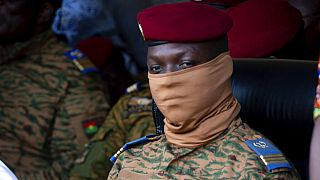

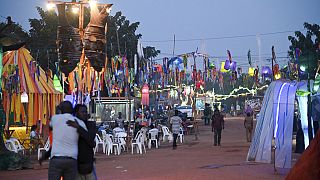
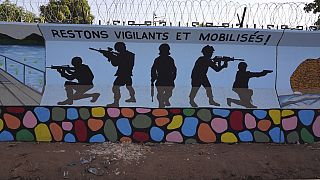
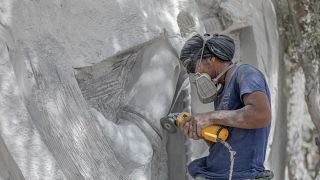
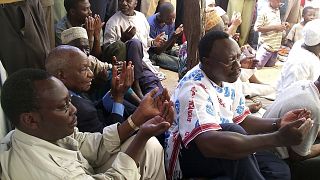


01:05
Brazilian police indict Bolsonaro for alleged attempted coup, threatening his political career
01:42
Niger: Conference in solidarity with the Alliance of Sahel States
01:00
Somaliland counts votes after pivotal election
Go to video
Mali: Director of Australian gold company arrested
00:56
South Sudan's peace monitoring body meets to discuss election postponement
01:11
Ten years since Compaoré’s overthrow: Burkina Faso’s decade of turmoil